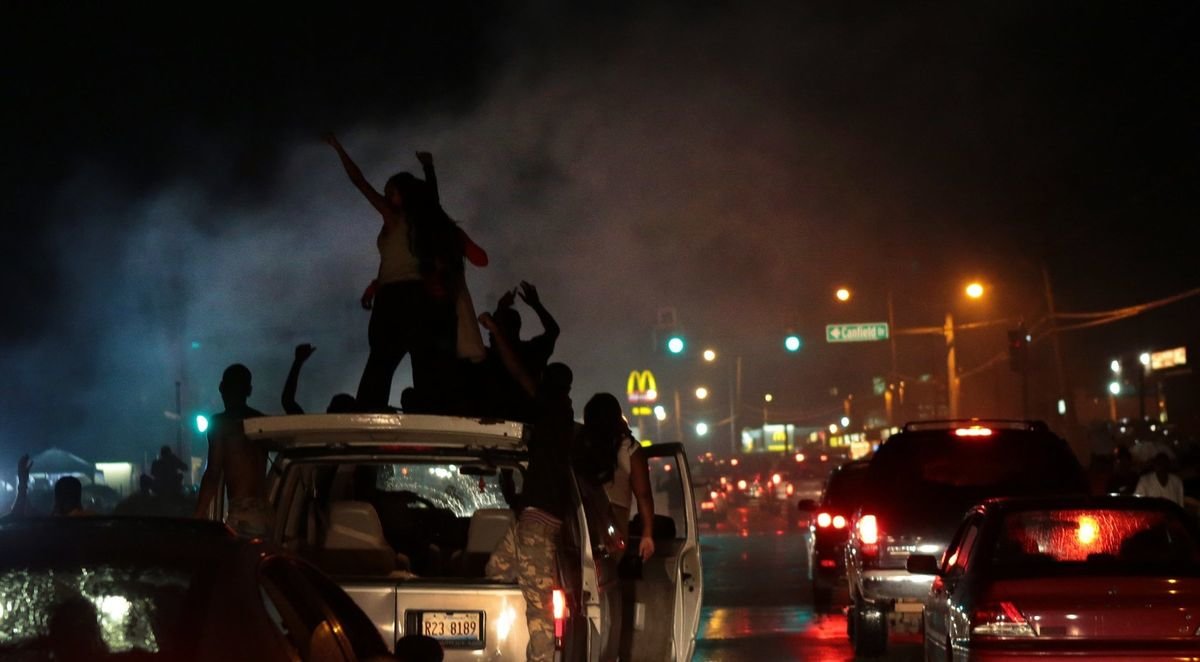Filed under: Critique, The State, US, White Supremacy

A critical piece from the Black Autonomy Network that addresses the issue of talk of reparations as a tool of recuperation.
What does it mean when Elizabeth Warren gets on national television and talks of reparations as a way that “…we can as a nation do what’s right and begin to heal?” Who is being healed? Can the very structure that historically and currently subjugates us offer us any means to heal, to undo or make even the damage done? Do we even want to heal the nation? Well, we certainly don’t.
“We understand that sections of the ruling class are willing to consider the idea of concessions to an ever rebellious and increasingly uncontrollable black population not to heal us but to save the State, and to put themselves in the presidency.”
We see this call for reparations by the democrats for what it is, the recuperation of what could potentially be a dangerous demand (or battle cry in an era of black revolt) for the ruling class. We understand that sections of the ruling class are willing to consider the idea of concessions to an ever rebellious and increasingly uncontrollable black population not to heal us but to save the State, and to put themselves in the presidency (and after election season lets see how quickly talk of reparations disappears).
Damn them and, in the name of our ancestors and our futures, damn the nation, too.
Reparations as a demand, like all demands, lends itself to disarmament and recuperation. The same state that subjugates us gets to set the limits and conditions of reparations, for we know damn well that the state is capable of doing everything under the sun but granting that which can threaten it’s power. The state also gets to draw the borders for who’s black enough, who can trace their ancestry enough, who can x, who has y to get reparations. Even in a more radical scenario reparations could mean that we are able to reshuffle the ruling class and distribution of wealth and maybe end up with a “socialist” state, but maintain the same colonial relationships, the same structures and mechanisms that enabled our oppression then and continue to now, and butt up against the same issues of the left in power everywhere.
For us reparations isn’t a demand to be made of the state, not for 40 acres and a mule (with inflation adjusted) or anything else. Along with reparations as a demand, we are also not interested in it delivered through capitalist property relations or economics (any economics). We agree with Saidiya Hartman when she says “I refuse to believe that the slave’s most capacious political claims or wildest imaginings are for back wages or debt relief. There are too many lives at peril to recycle the forms of appeal that, at best, have delivered the limited emancipation against which we now struggle.” We re-conceptualize reparations as an action, an attack on the order built off of our stolen labor – our stolen lives- which confines our existence to slavery, to wages and debt, to prisons and death, not just 500 years ago but today, here and now.
We see the act of reparations as the forms taken in which our liberation already exists. The ways in which our communities have had to exist outside of the law, outside of the economy, to take care of ourselves and each other. The autonomous zones that form in riots when we kick the police our of our neighborhoods. The breakdown of property relations when we loot the commodities we can’t afford but are told to want, only separated from us by the threat of state violence and a window, and share them with strangers on the streets. These acts of survival and attack carry in them the forms of organization and social relations that will open space for anarchy, and it is from these that we move to the liberation of territory, the destruction of work and the economy, and the abolition of the state and its physical manifestations.
We can demand of the state to give us land, or we can liberate it for all. We can demand of the state to give us a better life, or we can make and share one ourselves. We can demand of the state to stop killing us, or we can act to defend ourselves. We can demand of the state, or we can act to create our own autonomous power, our own liberation, against and outside of the confines of the state and capital.
❝ To believe, as I do, that the enslaved are our contemporaries is to understand that we share their aspirations and defeats, which isn’t to say that we are owed what they were due but rather to acknowledge that they accompany our every effort to fight against domination, to abolish the color line, and to imagine a free territory, a new commons. It is to take to heart their knowledge of freedom. The enslaved knew that freedom had to be taken; it was not the kind of thing that could ever be given to you. The kind of freedom that could be given to you could just as easily be taken back. Freedom is the kind of thing that required you to leave your bones on the hills at Brimsbay, or to burn the cane fields, or to live in a garret for seven years, or to stage a general strike, or to create a new republic. It is won and lost, again and again. It is a glimpse of possibility, an opening, a solicitation without any guarantee of duration before it flickers and then is extinguished.❞ – Saidiya Hartman, Lose Your Mother





